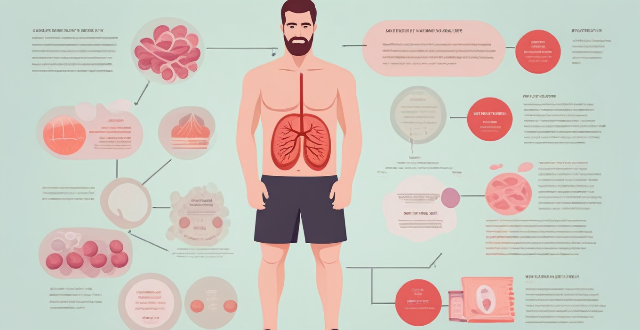Exercise Depression

How much exercise is needed to reduce anxiety and depression symptoms ?
Exercise has been shown to reduce anxiety and depression symptoms, with moderate-intensity aerobic exercise for at least 150 minutes per week being effective. However, individual factors such as age, gender, health condition, and lifestyle can affect the amount of exercise needed. It is important to choose enjoyable and sustainable activities for long-term use, and seek professional help if struggling with mental health issues.

Can exercise be a substitute for psychotherapy in treating mild depression ?
This article explores the potential of exercise as a treatment for mild depression and its possible limitations. While exercise can boost mood, reduce stress, improve sleep quality, and enhance self-esteem, it may not address the cognitive aspects of depression or be suitable for everyone. Therefore, it should not be considered a complete substitute for psychotherapy in all cases.

Is there a link between exercise and reduced risk of depression ?
**Link Between Exercise and Reduced Risk of Depression: A Comprehensive Overview** Depression is a prevalent mental disorder that affects millions globally. While its exact cause remains unclear, various factors, including lifestyle choices like exercise, have been studied for their potential to reduce the risk. This article delves into the evidence supporting the link between exercise and reduced risk of depression, exploring studies on animals and humans, potential mechanisms underlying this relationship, and practical tips for incorporating exercise into one's routine. **Studies on Animals:** Research has shown that regular exercise in rats can increase BDNF levels, a protein linked to the development and treatment of depression. This suggests that exercise may help reduce depression risk by boosting BDNF levels. **Studies on Humans:** Numerous studies have investigated the human connection between exercise and depression. A meta-analysis found exercise significantly reduces depressive symptoms compared to no treatment or placebo interventions. Another longitudinal study showed that regular physical activity lowers the likelihood of developing depression compared to sedentary behavior. **Potential Mechanisms:** Several mechanisms could explain how exercise reduces depression risk: * **Neurobiological Changes:** Exercise increases BDNF levels, promoting neuronal growth and improving mood. It also alters neurotransmitter levels involved in mood regulation. * **Endocrine Response:** Exercise stimulates endorphin release, producing pleasure and reducing pain perception, contributing to improved mood. * **Psychosocial Benefits:** Regular physical activity provides social interaction opportunities, enhancing mental health. It also improves self-esteem and body image. * **Stress Reduction:** Exercise reduces stress by decreasing cortisol secretion and promoting relaxation, which helps prevent depression since stress is a known risk factor. **Practical Tips:** To reduce your depression risk through exercise, start slowly with low-intensity activities, find enjoyable exercises, set realistic goals, make it social, and monitor your progress. In conclusion, ample evidence supports a link between exercise and reduced risk of depression. Both animal and human studies demonstrate the mood-enhancing effects of regular physical activity. By understanding the potential mechanisms and incorporating exercise into your routine, you can potentially lower your risk of developing depression and improve your overall well-being.

Can regular physical activity prevent depression ?
Regular physical activity can reduce depression risk by releasing endorphins, improving sleep, and boosting self-esteem. Start with 30 minutes daily of activities like walking or swimming, and consider joining a fitness class for motivation. Gradually increase intensity and listen to your body to avoid overexertion.

Can counseling help women overcome postpartum depression ?
Postpartum depression is a serious mental health condition that affects new mothers after childbirth. Symptoms include sadness, anxiety, and exhaustion, making it difficult for women to care for their babies or themselves. Counseling has been shown to be an effective treatment option for PPD. It provides a safe space to express emotions, identifies triggers, builds coping skills, enhances self-care, improves relationships, and supports medication management. If you or someone you know is experiencing symptoms of postpartum depression, consider seeking professional counseling to get the support and guidance needed to overcome this challenging condition.

Is it true that working out can improve your mood ?
Working out can improve your mood by releasing endorphins, boosting self-esteem, improving sleep quality, providing social interaction, and reducing symptoms of depression.

How can parents recognize and respond to signs of postpartum depression ?
Recognizing Signs of Postpartum Depression (PPD) is crucial for new mothers to seek help if needed. Common signs include persistent sadness, difficulty bonding with the baby, changes in appetite or sleep patterns, irritability, withdrawal from social activities, and thoughts of harming oneself or the baby. If you notice any of these symptoms, take action by talking to your doctor, seeking support from loved ones, joining a support group, taking care of yourself, and considering professional help. Remember, seeking help is not a sign of weakness; PPD is a real medical condition that requires attention and treatment.

How does exercise improve mental health ?
The article discusses how exercise improves mental health by reducing symptoms of depression and anxiety, improving mood, and enhancing cognitive function. It highlights the release of endorphins, regulation of neurotransmitters, stress reduction, increased energy levels, better sleep quality, enhanced self-esteem, improved memory and attention, reduced risk of cognitive decline, and promotion of neuroplasticity as mechanisms through which exercise positively impacts mental well-being. The conclusion emphasizes the importance of regular physical activity for overall well-being and advises consulting a healthcare professional before starting any new exercise program.

Can climate change exacerbate mental health issues such as depression and anxiety ?
Climate change can exacerbate mental health issues such as depression and anxiety through various pathways, including extreme weather events, displacement and loss of home, food insecurity, and economic stress. It is crucial for policymakers and healthcare professionals to recognize the connection between climate change and mental health and implement strategies to mitigate the adverse effects of climate change on mental well-being.

How does exercise improve cardiovascular health ?
This essay explores the ways in which exercise can improve cardiovascular health. It explains how regular physical activity strengthens the heart muscle, increases blood flow, and lowers blood pressure. The essay also discusses how exercise can reduce risk factors for cardiovascular disease, such as obesity, diabetes, and high cholesterol levels. Additionally, it highlights the positive effects of exercise on mental health and well-being, including stress reduction, depression management, and improved quality of life. Overall, the essay emphasizes the importance of regular exercise for a healthy lifestyle and encourages readers to incorporate physical activity into their daily routines.

Can exercise alleviate symptoms of PTSD ?
Exercise has been shown to alleviate PTSD symptoms such as flashbacks, nightmares, and avoidance behaviors. Research suggests that exercise may reduce anxiety and depression, improve mood, reduce stress, and improve sleep quality in individuals with PTSD. Endorphins released during exercise may also play a role in reducing symptoms. However, more research is needed to determine the optimal types and doses of exercise for different populations.

How does exercise influence aging and longevity ?
Exercise is crucial for maintaining good health and well-being, with numerous benefits including improved cardiovascular health and reduced risk of chronic diseases. It also has a significant impact on aging and longevity, as regular physical activity can help maintain muscle mass, improve bone density, and reduce the risk of chronic diseases. Exercise also has mental health benefits, such as improved cognitive function and reduced risk of depression and anxiety. Numerous studies have shown that exercise can lead to an increased lifespan by reducing the risk of premature death from various causes. Examples of long-lived populations, such as the Okinawans and Nicoyans, demonstrate the importance of an active lifestyle in promoting healthy aging and longevity. Incorporating exercise into your daily routine can lead to a higher quality of life during your golden years and potentially extend your lifespan.

How do sports psychologists incorporate exercise into their treatment plans for emotional disorders ?
Sports psychologists incorporate exercise into treatment for emotional disorders, leveraging its benefits on mental health. They assess clients' fitness and attitudes towards exercise, set realistic goals, and use individualized plans, behavioral techniques, and group activities to promote adherence and progress. This approach has been shown effective, as illustrated by a case example treating depression through structured, gradually intensifying exercise routines, leading to significant improvements in the client's mood and self-esteem.

How does regular exercise contribute to the prevention of chronic diseases ?
Regular exercise is essential for preventing chronic diseases by improving cardiovascular health, managing weight, and promoting mental health benefits. It strengthens the heart, lowers blood pressure, reduces cholesterol levels, burns calories, increases metabolism, improves insulin sensitivity, reduces stress and anxiety symptoms, improves sleep quality, and reduces depression symptoms. Incorporating regular exercise into your daily routine can provide long-term health benefits beyond physical fitness alone.

Can exercise help with stress management ?
**Topic:** Can Exercise Help with Stress Management? **Summary:** * **Introduction:** The inevitability of stress and its potential impact on health highlight the importance of effective stress management. Exercise is often touted as a beneficial method for reducing stress. * **Relationship Between Exercise and Stress:** * **Physical Effects:** Exercise triggers endorphins, reduces cortisol levels, and improves sleep quality—all of which contribute to stress reduction. * **Mental Effects:** Enhanced cognitive function, increased self-esteem, and mindfulness techniques associated with exercise can aid in stress management. * **Benefits of Exercise for Stress Management:** * **Physical Benefits:** Improved cardiovascular health, weight management, and pain relief can reduce stress caused by related health issues. * **Mental Benefits:** Exercise can alleviate symptoms of anxiety and depression, improve mood, and increase resilience to stress. * **Practical Tips:** * **Setting Goals:** Start small and choose enjoyable activities to make exercise a sustainable habit. * **Consistency:** Scheduling workouts, finding an accountability partner, and tracking progress can help maintain a regular exercise routine. * **Conclusion:** Exercise is a powerful tool for managing stress, offering both physical and mental benefits. Incorporating it into one's lifestyle can significantly enhance overall well-being and resilience to life's challenges.

How does physical exercise contribute to mental well-being ?
The text discusses how physical exercise contributes to mental well-being by releasing endorphins, boosting self-esteem, improving sleep quality, facilitating social interaction, and enhancing cognitive function. Regular physical activity can lead to long-term improvements in mental health, including reduced stress, anxiety, and depression, as well as better emotional stability and overall mood. Engaging in group sports or exercise classes provides opportunities for social interaction, which is essential for mental well-being, while achieving fitness goals can boost self-esteem and self-confidence. Better sleep patterns from exercise can lead to improved cognitive function and emotional regulation, while enhanced cognition may aid in the management of mental health conditions. Incorporating regular physical activity into your routine can promote mental well-being through these various mechanisms.

What are the psychological benefits of exercise for the elderly ?
Exercise for the elderly has several psychological benefits, includingExercise for the elderly has several psychological benefits, including symptoms, enhanced cognitive function, including mood improvement, reduced depression symptoms, enhanced cognitive function, increased social interaction, and better sleep quality. Regular physical activity boosts endorphins, reduces anxiety and stress, improves brain health, delays age-related cognitive decline, promotes community engagement, increases independence, and regulates sleep patterns. These benefits contribute to better mental health and well-being in older adults.

How can older adults benefit from exercise in terms of mental health ?
Exercise is crucial for maintaining and improving mental health in older adults. It enhances mood, reduces depression symptoms, improves cognitive function, manages stress, and provides opportunities for social interaction. Incorporating regular exercise can significantly promote overall well-being in the aging population.

How does exercise affect mood and emotions ?
Exercise has numerous positive impacts on mood and emotions, including the release of endorphins for a "runner's high," reduction in anxiety and stress by lowering cortisol levels, and improvement in self-esteem through goal setting and physical changes. Regular activity also enhances sleep quality by regulating sleep cycles and cognitive function by increasing blood flow to the brain. Social interaction during exercise provides emotional support and long-term benefits include prevention of depression and building resilience against stress.

How does exercise influence mood and emotional stability ?
Exercise has a positive impact on mood and emotional stability by releasing endorphins, reducing stress hormones, enhancing resilience, promoting mindfulness, and providing a sense of achievement. Incorporating regular exercise into your lifestyle can lead to better mental health and overall well-being.

How does exercise influence cortisol levels, which are associated with stress ?
Exercise has a complex relationship with cortisol levels and stress management. Acute exercise can cause a temporary increase in cortisol levels, while chronic exercise can help regulate them over time. By managing stress through regular physical activity, individuals can maintain healthy cortisol levels and improve their overall well-being. Chronic stress and persistently high cortisol levels can contribute to a range of health problems, including weight gain, high blood pressure, impaired immune function, decreased bone density, increased risk of heart disease and stroke, and mood disorders such as anxiety and depression. Regular exercise can help manage stress and maintain healthy cortisol levels by improving mood and mental health, better sleep quality, and increased resilience to stress.

Can exercise be a substitute for medication in treating some forms of emotional distress ?
This article explores the potential benefits of exercise in treating emotional distress, such as anxiety and depression, and discusses whether it can be a substitute for medication. While exercise has numerous benefits for mental health, including stress reduction and improved sleep quality, it may not be suitable for everyone or replace medication in all cases. Factors such as symptom severity and individual differences should be considered when determining the best approach to managing emotional distress. Exercise should be viewed as part of a comprehensive treatment plan that includes medical care, therapy, and lifestyle changes tailored to the individual's needs.

How does exercise influence the brain's chemistry related to emotions ?
Exercise significantly impacts brain chemistry, enhancing emotionalExercise significantly impacts brain chemistry, enhancing emotional neurotransmitters like doin, promoting neuroplasticity through BDNF, and boosting self-efficacy and social interaction. Incorporating enjoyable physical activities into daily routines can lead to improved mental health.

How does exercise benefit the health of older adults ?
Exercise plays a crucial role in maintaining the health and well-being of older adults. Regular physical activity can significantly improve their quality of life by preventing diseases, promoting longevity, and enhancing mental health. This text discusses the various benefits of exercise for seniors, including improvements in strength, endurance, mobility, balance, chronic disease management, stress reduction, emotional health, cognitive functioning, social interaction, independence, and overall quality of life. Engaging in regular physical activity is one of the most effective ways for seniors to maintain a healthy and fulfilling lifestyle as they age.

Is there a link between exercise and improved self-esteem ?
This topic summary explores the relationship between exercise and self-esteem, explaining how regular physical activity can boost mental health and improve one's perception of their own worth. It discusses the types of exercise, their benefits on mental health, and evidence from research supporting the positive correlation between exercise and self-esteem. The conclusion emphasizes the importance of incorporating exercise into one's routine to enhance self-esteem.

How does regular exercise contribute to boosting the immune system ?
Regular exercise has numerous health benefits, including boosting the immune system. It promotes increased blood circulation, reduces inflammation, helps in weight management, reduces stress, improves sleep quality, enhances gut health, increases antioxidant capacity, supports cardiovascular health, enhances mental health, and contributes to increased longevity. Incorporating regular physical activity into your lifestyle can support a strong and resilient immune system.

Are there any age-related considerations when using exercise to prevent chronic diseases ?
Age-related considerations for using exercise to prevent chronic diseases include cardiovascular health, musculoskeletal health, balance and coordination, and cognitive health. Exercise intensity should be adjusted based on maximum heart rate, and low-impact exercises are recommended for joint pain. Weight-bearing exercises can help reduce the risk of osteoporosis. Balance and coordination exercises can reduce the risk of falls, and stretching can maintain flexibility. Regular exercise can also improve cognitive function and alleviate symptoms of depression and anxiety in older adults.